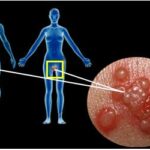The Dark Link Between Depression and Hypersexuality
In the shadows of mental health, two seemingly contrasting elements often intertwine: depression and hypersexuality. While depression is commonly associated with feelings of sadness, low energy, and disinterest in activities, hypersexuality represents an intense and heightened state of sexual desire and behavior.
This intriguing and complex connection between depression & hypersexuality has garnered attention from researchers, clinicians, and individuals alike.
In this article, we delve deep into the realms of these intertwined experiences, exploring their causes, effects, and potential treatment approaches. Join us on this journey as we shed light on the enigmatic relationship between the two.
Understanding Depression and its Impact
1.1 The Overwhelming Darkness: A Brief Overview of Depression
Depression, a prevalent mental health condition, affects millions worldwide. It encompasses a range of symptoms, including persistent sadness, loss of interest, changes in appetite, sleep disturbances, and low self-esteem. We explore the various facets of depression, its impact on individuals, and the challenges they face.
1.2 Unveiling the Hidden Depths: The Complexity of Depression
Depression is a multifaceted condition influenced by biological, psychological, and environmental factors. We delve into the intricate interplay of these factors and how they contribute to the development and manifestation of depression. Understanding the underlying mechanisms is crucial to comprehending its connection to hypersexuality.
Hypersexuality: Beyond the Norm
2.1 Hypersexuality Unveiled: Defining an Intense Sexual Desire
Hypersexuality, often referred to as compulsive sexual behavior or sexual addiction, involves an overwhelming preoccupation with sexual thoughts, fantasies, and behaviors. We shed light on the concept of hypersexuality, its diagnostic criteria, and the challenges faced by individuals grappling with this condition.
2.2 The Intersection of Despair and Desire: Hypersexuality in the Context of Depression
In this section, we explore the intriguing relationship between depression and hypersexuality. While depression is often associated with reduced sexual desire, a subset of individuals experiences increased sexual thoughts and behaviors during depressive episodes.
We investigate the potential reasons behind this paradoxical connection and delve into the psychological and neurobiological factors at play.
Unraveling the Complex Connection (Depression and Hypersexuality)
3.1 The Role of Dopamine: Neurochemical Underpinnings of Hypersexuality in Depression
Dopamine, a neurotransmitter associated with pleasure and reward, plays a crucial role in both depression and sexual desire. We examine how dysregulation of the dopamine system may contribute to the co-occurrence of depression and hypersexuality, offering insights into the intricate neural pathways involved.
3.2 Coping Mechanisms and Maladaptive Strategies: The Vicious Cycle
Depression often leads individuals to seek avenues of relief, and hypersexuality can serve as a maladaptive coping mechanism. We explore the cyclical nature of this relationship, highlighting how hypersexuality may provide temporary relief from depressive symptoms while perpetuating a detrimental cycle in the long run.
Seeking Solutions
4.1 Treatment Approaches: Addressing Depression and Hypersexuality
This section focuses on potential treatment approaches for individuals facing the challenging combination of depression and hypersexuality. We discuss psychotherapy, pharmacotherapy, and holistic interventions that aim to address both conditions simultaneously, promoting overall well-being and sexual health.
4.2 Support Systems and Self-Care: Nurturing Resilience
Building a strong support network and implementing self-care strategies are integral to nurturing resilience in individuals dealing with depression & hypersexuality. We explore the importance of seeking professional help, engaging in therapy, connecting with support groups, and incorporating self-care practices tailored to individual needs.
By fostering a holistic approach to healing, individuals can find solace and regain control over their mental and sexual well-being.
- Destigmatizing the Conversation
5.1 Breaking the Silence:
Depression and hypersexuality are often shrouded in shame and secrecy, preventing individuals from seeking help and support. We emphasize the importance of destigmatizing these experiences and promoting open dialogue to foster understanding, empathy, and acceptance.
By shedding light on these often misunderstood topics, we pave the way for increased awareness and compassionate conversations.
Education and Awareness: Empowering Individuals and Communities
Educating individuals, communities, and healthcare professionals is vital in recognizing the complexities of depression and hypersexuality.
We discuss the significance of raising awareness, disseminating accurate information, and encouraging empathy to create an inclusive environment that supports those navigating these intertwined experiences.
Conclusion
The intricate relationship between hypersexuality and depression unveils a complex and nuanced narrative within the realm of mental health. By delving into the causes, effects, and treatment approaches, we gain a deeper understanding of these intertwined experiences.
Through open dialogue, destigmatization, and access to appropriate support systems, individuals can find solace, regain control over their lives, and embark on a journey towards healing and recovery. Let us continue to explore and embrace the multifaceted nature of mental health, ensuring that no one faces their struggles alone.
Remember, if you or someone you know is experiencing hypersexuality or if you’re experiencing depression, reach out to a healthcare professional for guidance and support.
Anxiety and an Anxiety disorder
Anxiety and an Anxiety disorder

A graduate of Computer Science and Information Management Technology. Diploma – Caregiving, Certificates – Dementia and Diabetes Awareness and Management. A researcher, blogger, songwriter, singer and acoustic guitarist. Born in an environment where natural talents such as healing are imparted at our natural birth. This natural talents of healing is the result of our genetic inheritance and the training from family environment.













